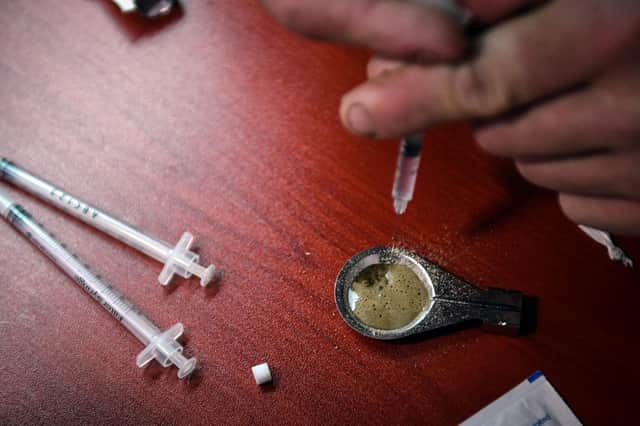Editor: This isn’t working so what is the right answer for better?


You can read the details on the opposite page and I am sure we all have an opinion on it. In fact, it is one of those controversial subjects which everyone has an answer to yet there isn’t one solution which the country can agree over.
So how do we stop more lives being wasted and do we need changes in the law?
Advertisement
Hide AdAdvertisement
Hide AdShould we clamp down harder on those who abuse illegal substances or should they be made legal? After all, many places across the world have stopped punishing those who use cannabis and our death rates are far worst than theirs.
There are many who argue that taking away the criminal element of using drugs means addicts can use them far more safely and in environments which are less risky to their health.
Opponents say it would just make them far more easily available and entrap more people into a lifestyle which often leads to crime, and sometimes death.
None of these are new arguments but there are scores of heartbroken families in Sheffield who know that what is being done now, just isn’t working.
Advertisement
Hide AdAdvertisement
Hide AdHere’s what the government has to say: “Any death due to drug misuse is a tragedy. To prevent people losing their lives to drug abuse we're launching a consultation today to improve access to naloxone. This will allow those working with addicts, including police, paramedics and prison officers, to administer the drug which helps reverse the effects of opioid overdose and save lives. We are already investing £148m to tackle the root causes of drug misuse including £80m for treatment and recovery - the largest investment in the drug treatment system for 15 years.”
But it clearly isn’t enough is it? Or, at least, we aren’t approaching this the right way.
If we don’t approach this in a new way, we are just passing the buck on something that will haunt many generations to come. If you were given the keys to Number 10, what would you do the finally tackle a problem that may never stop killing but surely can be lessened?
Comment Guidelines
National World encourages reader discussion on our stories. User feedback, insights and back-and-forth exchanges add a rich layer of context to reporting. Please review our Community Guidelines before commenting.